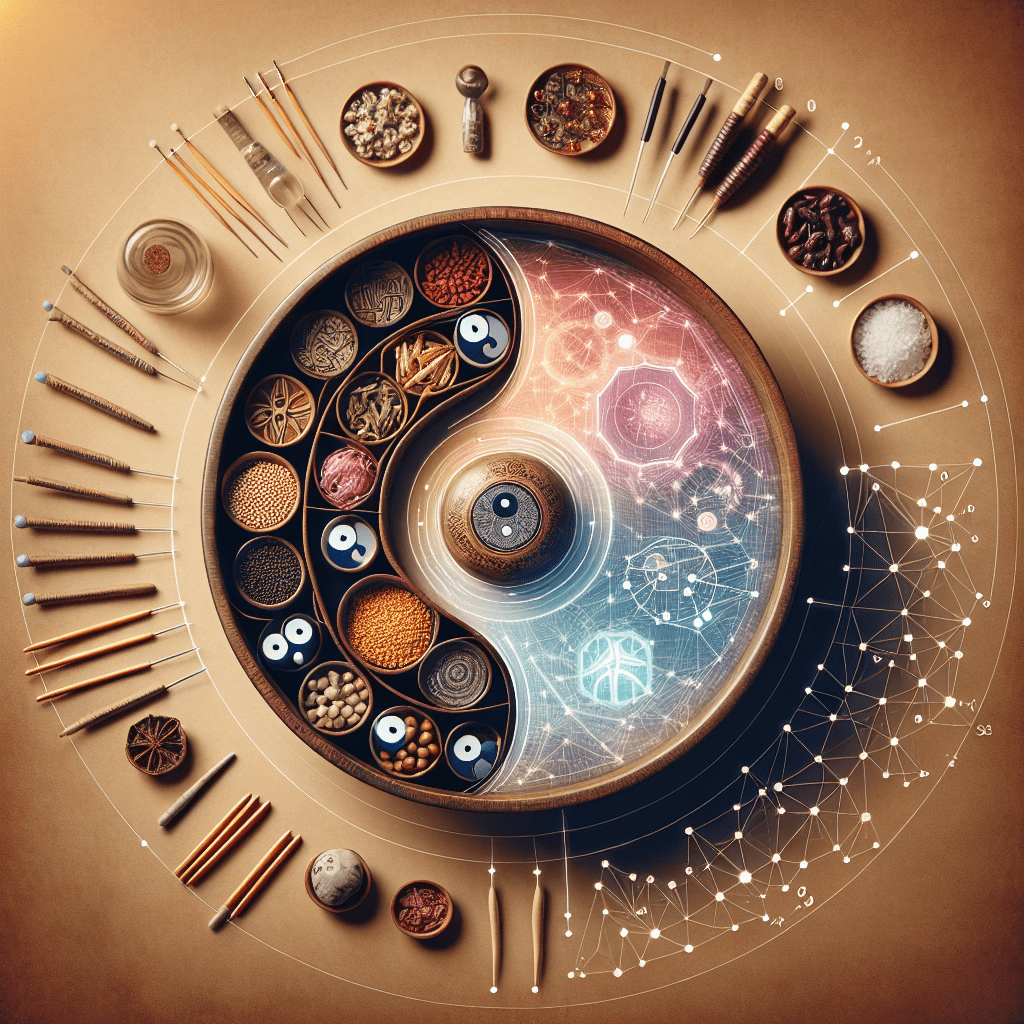Have you ever noticed how your emotions can affect your physical well-being? Or how stress seems to show up in your body in unexpected ways? There’s a fascinating reason for this connection, and it flows through an invisible pathway called the liver meridian.
In Traditional Chinese Medicine (TCM), the liver meridian isn’t just about the physical organ we know from Western medicine. It’s a powerful energy channel that acts as a master planner for your entire body. This ancient wisdom, dating back over 2,000 years, reveals how this meridian serves as a secret pathway that can unlock emotional balance and vibrant health when properly understood and nurtured.
The Ancient Wisdom of the Liver Meridian
The liver meridian is one of the 12 primary meridians in TCM, each corresponding to different organs and functions in the body. But the liver meridian holds a special place in this system. It’s often called the “General” of the body’s energetic army because it oversees the smooth flow of Qi (pronounced “chee”) – your vital life energy.
Think of the liver meridian as your body’s head of operations, making sure everything runs smoothly. When this meridian is balanced and flowing freely, you’ll likely experience emotional stability, clear thinking, and physical vitality. When it’s blocked or stagnant, you might notice irritability, frustration, physical tension, or even digestive issues.
What makes the liver meridian truly special is its profound influence on both our physical health and emotional state. In our modern, stress-filled world, understanding this connection offers a valuable tool for achieving holistic wellness that addresses both body and mind together.
The Journey of the Liver Meridian: A Path Through Your Body
The liver meridian’s physical pathway tells us a lot about its function. Unlike what you might expect, this energy channel doesn’t start at the liver itself. Instead, it begins at your big toe – specifically at the lateral side of the big toenail.
From there, it travels up the inside of your leg, passing through the ankle and knee before continuing up the inner thigh. The meridian then flows through the genital region and into the lower abdomen where it connects with the physical liver and gallbladder. Continuing upward, it passes through the diaphragm, spreads into the ribs, and travels up through the throat before finally connecting with the eyes and ending at the crown of the head.
This extensive journey illustrates something profound about TCM’s understanding of the body: everything is connected. The fact that the liver meridian begins at your feet and ends at your head shows how energy flows throughout your entire system, creating a unified whole rather than isolated parts.
The path of the liver meridian also explains why issues with liver Qi can manifest in seemingly unrelated areas. Eye problems, headaches, menstrual irregularities, and even big toe pain can all potentially link back to imbalances in the liver meridian. This understanding of interconnectedness is one of TCM’s most valuable contributions to our approach to health and healing.
The Three Vital Functions of the Liver Meridian
To fully appreciate the liver meridian’s importance, let’s explore its three primary functions in maintaining your overall well-being:
1. Regulation and Planning: The Body’s General
In TCM, the liver is the master planner of the body. It oversees the smooth circulation of Qi and ensures everything runs according to plan. Think of it like a traffic controller for your body’s energy.
When your liver meridian is functioning optimally, Qi flows smoothly throughout your body. You’ll likely feel organized, capable of planning ahead, and able to adapt to life’s changes with flexibility. When the liver meridian is imbalanced, you might feel stuck, frustrated, or unable to move forward in life.
A woman I know described her experience with liver meridian work perfectly: “Before understanding my liver meridian, I constantly felt overwhelmed by minor obstacles. After working with acupuncture to balance this energy, I suddenly found myself handling challenges with a surprising calm and clarity.”
2. Blood Nourishment: The Reservoir of Vitality
The liver meridian is intimately connected with blood storage and nourishment. In TCM, the liver stores blood during rest and releases it during activity, ensuring all tissues receive proper nourishment.
This function explains why liver meridian imbalances often show up as problems with tendons, muscles, nails, and especially the eyes. All these tissues need rich blood supply to function properly. Many people don’t realize that according to TCM, eye problems often trace back to liver meridian issues since the liver “opens to the eyes.”
If you’ve ever noticed your vision getting blurry when you’re exhausted or stressed, you’re experiencing this connection firsthand. The liver meridian’s relationship with blood nourishment impacts your physical stamina, recovery from exertion, and even the health of your vision.
3. Emotional Balance: The Harmony Keeper
Perhaps the most relevant function for our stress-filled modern lives is the liver meridian’s role in emotional balance. The liver is associated with the emotion of anger in TCM, but this connection goes much deeper than simply “liver problems cause anger.”
The liver meridian helps process and smooth our emotional experiences. When functioning well, it helps us adapt to emotional changes with resilience and grace. When imbalanced, emotions can become stuck, leading to irritability, depression, or emotional outbursts that seem disproportionate to their triggers.
As one TCM practitioner explains: “The liver likes flow and hates constraint. When emotions get stuck—especially frustration, resentment, or unexpressed anger—the liver meridian is the first to feel it, creating a cycle that affects both emotional and physical health.”
This is why practices that move liver Qi, like certain forms of exercise, deep breathing, or acupuncture, often result in emotional release and a newfound sense of calm.
Key Acupuncture Points Along the Liver Meridian
The liver meridian contains 14 acupuncture points, each with specific functions. While it’s always important to work with qualified practitioners for acupuncture treatment, understanding a few key points can help you appreciate the meridian’s potential:
LIV 3 (Taichong or “Great Rushing”)
Located on the top of the foot in the depression between the first and second metatarsal bones, LIV 3 is sometimes called the “stress-relief point.” It’s one of the most powerful points for moving stagnant liver Qi and calming the mind.
Many people report feeling a profound sense of release and relaxation when this point is stimulated. It’s often used for headaches, irritability, menstrual pain, digestive issues, and eye problems – all conditions that can stem from liver Qi stagnation.
LIV 14 (Qimen or “Cycle Gate”)
Found on the lower edge of the rib cage, directly below the nipple, this point is the final point on the liver meridian. As a meeting point between different energies in the body, it has powerful effects on emotional balance.
LIV 14 helps relieve chest congestion – both physical and emotional. People often describe a feeling of emotional heaviness lifting when this point is activated. It’s particularly helpful for those who feel emotionally “stuck” or who hold grief in their chest.
Complementary Point: KD 3 (Taixi or “Great Stream”)
While technically on the kidney meridian, KD 3 (located in the depression between the inner ankle bone and Achilles tendon) works powerfully with the liver meridian. The kidney and liver meridians share a close relationship in TCM, with kidney energy supporting liver function.
This point helps nourish both kidney and liver energy, promoting emotional stability and supporting the body’s natural detoxification processes. Many practitioners recommend massaging this point gently when feeling emotionally overwhelmed or physically depleted.
Health Implications: How Your Liver Meridian Affects Your Well-being
The liver meridian’s influence extends to numerous aspects of health. Understanding these connections can help you recognize potential liver meridian imbalances and take steps to restore harmony:
Eye Health and Vision
In TCM, the liver “opens to the eyes,” meaning it has a direct connection to vision and eye health. Dry eyes, blurry vision, red eyes, and eye fatigue often signal liver meridian imbalances. Many people don’t realize that excessive screen time not only strains the eyes directly but can also deplete liver energy, creating a double burden on visual health.
Supporting your liver meridian through proper rest, nutrition, and stress management can have remarkable effects on eye comfort and visual clarity.
Digestive Harmony
The liver meridian works closely with the digestive system, particularly through its relationship with the gallbladder. When liver Qi becomes stagnant, digestive issues often follow. Symptoms like bloating, irregular appetite, and abdominal discomfort frequently trace back to liver meridian imbalances.
As one TCM doctor notes: “Many patients come in complaining of digestive issues that haven’t responded to conventional treatments. When we address their liver meridian – often by reducing stress and emotional tension – their digestive problems resolve as well.”
Headache Relief
The liver meridian’s pathway travels up to the head, explaining why liver Qi stagnation commonly manifests as headaches – particularly those that affect the temples or top of the head. These headaches often worsen with stress and emotional upset.
By addressing the liver meridian through acupressure, stress reduction, or dietary adjustments, many people find relief from chronic headaches that haven’t responded to other approaches.
Stress Management and Emotional Release
Perhaps the most valuable aspect of liver meridian knowledge for modern life is its application to stress management. The liver meridian provides a framework for understanding how emotional stress becomes physical tension, and vice versa.
Practices that support the liver meridian – like moderate exercise, deep breathing, creative expression, and appropriate rest – help process and release emotional tension before it becomes locked in the body.
As one practitioner beautifully expresses it: “The liver wants to plan and flow, not control and restrict. When we learn to move with life rather than against it, the liver meridian responds with balance and harmony that affects every aspect of our well-being.”
Embracing Ancient Wisdom in Modern Life
The liver meridian’s principles align perfectly with the philosophy behind holistic wellness approaches. Just as this ancient pathway illustrates the connection between emotional and physical health, HerbalsZen embraces the integration of Eastern wisdom with modern understanding.
The concept of the liver meridian reminds us that true health isn’t about treating isolated symptoms but about nurturing the body’s innate systems of balance and flow. This perspective – seeing the body as an interconnected whole rather than separate parts – forms the foundation of truly effective wellness practices.
In our fast-paced modern world, the liver meridian’s wisdom offers particularly valuable guidance. The meridian’s emphasis on smooth flow, emotional processing, and balanced energy speaks directly to our contemporary challenges of stress, disconnection, and information overload.
By understanding and supporting your liver meridian, you’re not just addressing a single aspect of health – you’re nurturing a fundamental pathway that influences your entire physical and emotional well-being. This holistic approach draws on 2,000 years of Eastern medical wisdom to provide personalized wellness guidance for modern life.
The liver meridian teaches us that the path to vibrant health flows through emotional balance – a powerful reminder that our ancient ancestors understood connections that modern science is only beginning to rediscover. By honoring these connections in our approach to health, we open ourselves to deeper healing and more sustainable well-being.




